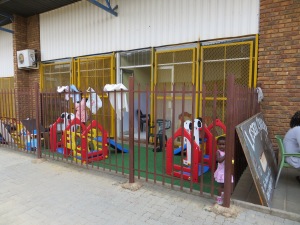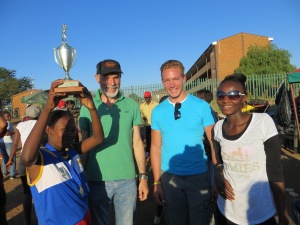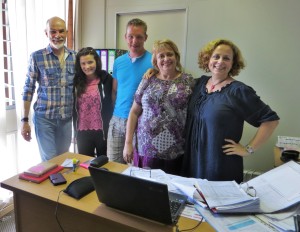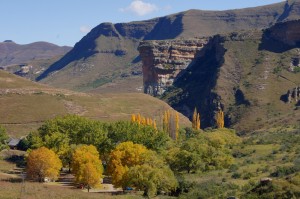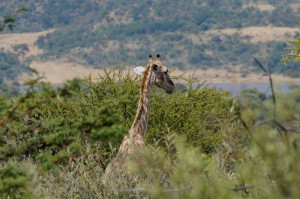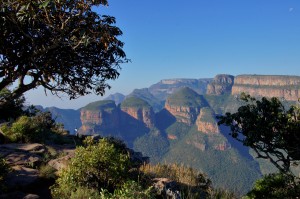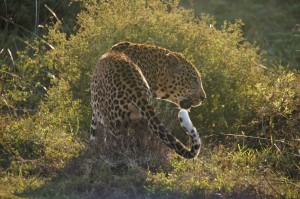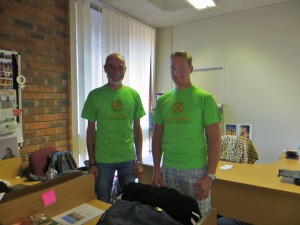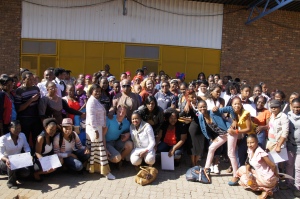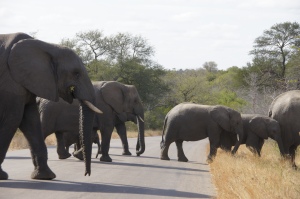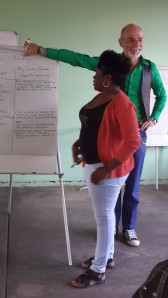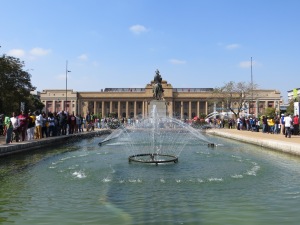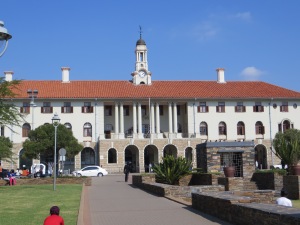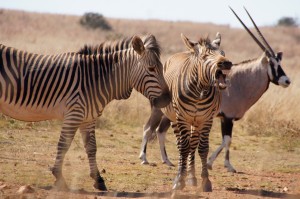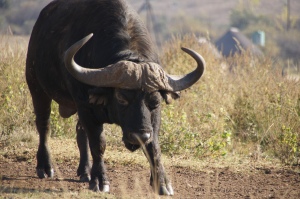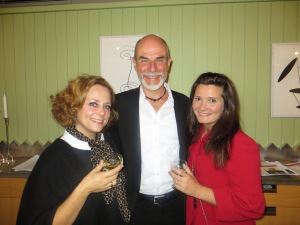Egal ob der Einsatz in Tanzania, Kambodscha oder Argentinien ist. Als Berater auf Zeit steht man auch einer ganzen Reihe Herausforderungen gegenüber. Sprache, kulturelle Unterschiede, oder aber auch regelmäßiger Stromausfall und knappe Ressourcen…im Einsatz lernt man kreativ zu sein und mit Unvorhergesehenem umzugehen.
Seit Mitte Mai ist ein weiterer Berater auf Zeit in seinem Einsatz in Tanzania. Rick berät in einem Community Projekt im Großraum Dar-es-Salaam. Nach Stromausfällen, schwachem Internet und wahrscheinlich auch den ständigen Netzschwankungen, gibt es seit mittlerweile nun knapp 2 Wochen Probleme mit dem Akku in seinem Laptop. Und so ist die Aktualisierung seines eigenen Blogs und der Einträge bei Manager für Menschen nicht immer reibungslos möglich. Zukünftig werden wir mit Ricks Erlaubnis eine Auswahl aus seinem privaten Blog hier posten.
Viel Spaß beim Lesen!
1. Mai 2014
„Lets start at the very beginning, a very good place to start“ (The Sound of Music)
‚Let’s start at the very beginning.‘ That’s easy for Julie Andrews to say, but the tale of how I got to go to Kigamboni Community Centre (KCC) is a rather long one, so I won’t start at the beginning.
-

-

A few points are important nonetheless. Apart for a short period of unemployment about 12 years ago, I haven’t had a longer break than 3 weeks from work in over 30 years. So the prospect of getting an extra month’s paid leave after having worked for 10 years in HEKS was wonderful, but also a challenge. What to do with this once-in-a-lifetime chance? A month walking in the alps? Or along the coast in Crete? Or doing the rest of the Dales Way in England? All very attractive options. But I also wanted to experience something new and different. So I took up an old idea of being a volunteer in another country. (Fresh out of university 40 years ago I was a full-time volunteer for 6 months working with homeless people, an experience which changed my life radically and positively, so the idea has been dormant for a while). Africa had always fascinated me, especially Tanzania because of its first president, Julius Nyerere, and his African Socialism (I know it failed in many ways, but he was and still is an impressive and revered person). I was in Tanzania two years ago for a couple of weeks (in Moshi at the foot of Kilimanjaro) and had a great time. What to do though for the 5 weeks I’d allowed myself?
Via internet I came across ‚Manager für Menschen‘, an organisation based in Germany which links up „qualified managers and experts who would like to spend a meaningful sabbatical in order to involve themselves in a social community development and NGOs requiring short-term missions of experts or consultants“. The general manager, Elke Dieterich, had been inspired to found M4M by her own experiences in Tanzania and was just the person who could help me. With my CV and a letter of motivation she was able to find 3 organisations who were interested in having me help them; I skyped with two of them on the basis of which KCC and I agreed to give it a go!
KCC attracted my interest from the very start because of the vitality and commitment of those involved. In the short space of 7 years the organisation has grown fast and they have built up an impressive array of projects. KCC is currently undergoing an assessment by Molly’s Network, an independent accreditation scheme based in Dar es Salaam which „endorses local organisations that run effective and efficient organisations and achieve impact in their communities“ On the 12th May KCC will receive their report and recommendations. Two days later I arrive for my 5 week stint – the timing is coincidental but perfect – and assist KCC in the process of deciding which recommendations to take up and how to implement them. Parallel to this, but less intensively, Molly’s Network will continue to support KCC over the next 18 months.
So that’s my main work for the next five weeks, and I’m really looking forward to it! But in the spirit of Abraham Lincoln („Give me six hours to chop down a tree and I will spend the first four sharpening the axe“), I want to get to know KCC and the people there first. I guess I won’t be participating in the acrobatics‘ classes (take a look at the videos on the website to see why), but maybe I can teach some English or help in other ways. And when I’m not working? Well at the moment I’m especially looking forward to swimming in the Indian Ocean at the beautiful Mikadi Beach which is only a mile or so away from where I’ll be staying. Sounds good, doesn’t it?
15. Mai 2014
Arriving in Tanzania
As expecteod it has been quite a plunge into another world in the last couple of days. Just the airports for a start. Doha, Kuwait, where I had changed planes a few hours earlier, was opulent and, seen from the plane, looked like somewhere in a science-fiction film. And then Dar es Salaam which reminded me of the film ‘Casablanca’!
After landing and getting a visa by a process which I didn’t really understand but seemed to work, Nas met me and off we went to Kigamboni in a bajaji, a three wheel vehicle for up to 3 or 4 passengers, along totally congested and potholed roads. It took the best part of an hour and I’m glad it wasn’t any longer. I hadn’t slept much so I had a break and then Nas took me to KCC. It’s just 10 minutes to walk there along busy untarred roads flanked by shops and even more numerous street vendors. Once there, the community centre as such was much as I had imagined thanks to the picture I had been able to make from their website. In the space of a few hours I was able to observe a variety of activities all being led by volunteers and all pursued seriously yet with humour: acrobatics, music, English and computer lessons, theatre and, of course, the ubiquitous football.
In talks with Nas and Rashid, two of the founder members, and Sakina, the financial manager I got my first taste of the work facing me. I won’t go into that now except to say that KCC is facing even more difficulties than I suspected. Importantly though, I have been made very welcome and I feel a lot of trust from those I’ve met. And parallel to this, high hopes and expectations on me. I hope I don’t disappoint them!
Otherwise my first 36 hours here have been spent settling in, trying to catch up on sleep and sorting out sim-cards and internet access. All rather annoying and time consuming. Despite globalisation countries seem to have very different ways of administering even these things. My own impatience and tiredness leading to irritation with electronic devices hasn’t helped either. And that’s a sign to post this and get off to bed. Tomorrow I’m getting up early to go for a run on the Mikadi beach with Nas. Looking forward to that after so much sitting and talking.
22. Mai 2014
What am I doing here?
The rhetorical question above shouldn’t be understood as my questioning whether I should be here or not. Far from it. In KCC I’ve found a really impressive grassroots community organisation doing very interesting things and which deserves to be supported. Moreover an organisation with a few problems where I feel I can bring in lots of the experience which I have collected over the years. I’m relishing it!
I think I’ve already written that KCC has just been assessed by a local organisation, Molly’s Network. When making their recommendations they knew I was coming here and made some suggestions as to what I could do. In the meantime I’ve added a couple of things myself and having discussed it all with Nas and Rashid and now have a plan what I want/should do and at the moment it looks realistic!
The problems which KCC face are very typical of a young organisation coming out of its pioneering phase. Until now much has been achieved through the inspiration and dedication of the four founder members. But the informality and spontaneity of the first years do have their disadvantages, as they tend to develop into a lack of consistency and clarity. There was a crisis last year in KCC centring around the former director who then had to leave. (I don’t think it’s rare for a founder to be kicked out or to leave with both sides being disillusioned; it’s happened in at least three of the organisations for which I have worked and I haven’t worked in so many!). And now the next phase is due, in fact overdue. And that’s where I have more experience and feel more at home. (Interestingly the problems which KCC has are not significantly different from those of the organisations I was in. I showed Nas a paper on the subject written by Europeans and he could agree that many of the characteristics of the crisis described there are to be found in KCC today. Any cultural differences aren’t that significant.)
So coming back to my original question, what am I actually doing here?
I’m assisting KCC in 3, maybe 4 areas. Firstly with the bookkeeping. I don’t often use the word ‘shocked’ but here it’s appropriate: I’ve been shocked how neglected their bookkeeping has been. And it’s not just KCC who are at fault: the auditing firm can’t find the audit report for 2012! At KCC expenditure and income are recorded on excel spreadsheets and that’s about it. The amounts aren’t even added up, let alone checked against the bank statements. There’s no formal petty cash account (just money in an envelope) even though cash is the main means of transactions here, etc. etc. Luckily everybody thinks this must be improved and urgently. I heard today that my request that Molly’s Network tries to provide some bookkeeping software and expertise to train and support the finance director will almost certainly be successful. Great news, not just for Sakina, the finance director, but also a confirmation for me. (Of course she should have complained earlier that she was out of her depth, but anyway).
A second area is the organisational structure. It is there basically, but not fully utilized. So for example there are neither job descriptions (in fact some were drawn up two years ago but never implemented) nor an organisational chart. These are all the more urgent as the Board of Directors are planning to pay an allowance to those who have positions of responsibility and need a clear basis for their decisions. Here, as everywhere I guess, money is a sensitive theme, so they have to do this very carefully.
The third piece of work I’ve been asked to do is do a kick-off meeting to develop a new strategy and then help with the first draft. I’m especially looking forward to that as I can bring in my experience as an adult educator which I haven’t used for a long time.
The fourth area I’ll go into on another occasion (it’s a long, complicated story, especially for me coming from the outside): their difficult financial situation, where I’m coaching Nas and Rashid.
All very fascinating and challenging, but I’m really enjoying it.
23. Mai 2014
But its not all work
It must be around midday (I haven’t worn a watch since I’ve been here which helps me get in the local attitude towards time!) and I’m typing this into my netbook lying in a hammock on Mikadi beach having had a lovely swim. For a change there are no clouds and as there’s hardly a breeze and the temperature is about 28 degrees (82 F) it’s very pleasantly warm.
One other good thing about Mikadi is that I can eat some different food from that at Nas’. Not that the food there is bad; it’s just rather monotonous. Breakfast is chapatti with brown sugar and tea strongly flavoured with ginger. The evening meal has always been rice up until now with some vegetables, usually a type of spinach, and with a sauce and a smallish bit of fish or meat. For dessert it’s usually a banana but yesterday I saw some mangoes on a street stall and we had thoseWhen I get back toThe shore’s fairly flat here so the tide goes out a long way and swimming is only really possible around high tide. The waves aren’t high so the swishing noise of them going up and down the sand is calming. More like the Mediterranean than the North Sea so one can really swim and not just jump up and down in the waves (although this is what most of the locals do here, probably as many can’t swim). And there’s no underwater tug or drift so it’s very safe. At the moment there are very few people here so if it wasn’t for the disco music coming from next door it would be totally idyllic.
My day started with an early morning jog along the beach with Hassan from KCC. along , It’s really beautiful running on sand.I’ve been warned not to go alone on that stretch of the beach because there’s a chance of being mugged, so I’m glad to have a companion. We don’t talk much during the run which suits me. Because he’s not as fit as I am we don’t go for as long as I would really like, but I’m glad to be able to go at all.
My time at KCC has been fascinating and absorbing as you blog-readers will already know, so I’m glad to be able to get away now and again to think and to relax, which I’ve managed to do here in Mikadi every day lately. For that the beach is perfect and I’m very glad I can get here so easily. It’s only about 500 metres from Nas’ house where I’m staying. Unfortunately I have to leave before it gets dark for safety reasons,













































